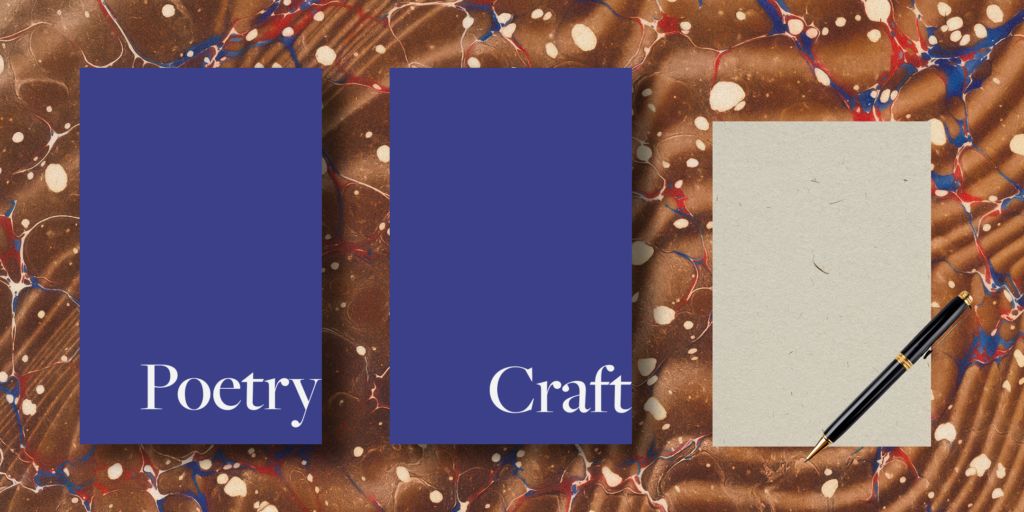Stav Poleg discusses how to take inspiration and influence from iconic writers such as Rimbaud and use it to elevate your own poetic craft.

What drew you to writing in response to other poets’ work? Do you remember the first time you tried it?
I’ve always considered the practice of writing as simultaneously an act of studying. In other words, I want to discover and learn new things in the process of creating new work, but crucially – I don’t want these things to be only about myself. If you’re not careful, you can end up writing about yourself forever because there are no limits to the complexities of the self, and we keep encountering new experiences. But at a certain point, purely in the sense of creative excitement, I find writing about myself a bit limiting. After all, I live with myself all the time – you can never escape from the self. But writing can be an opportunity to go outside of the self, even for a short while, and that can be incredibly exciting. I believe that as writers, it is the looking outwards that we need to constantly work on as a skill, because looking inwards happens anyway. Writing in response to writers I admire is part of my process of looking outwards, of engaging with complex and exciting new ideas, and of wrestling with different, and sometimes opposite, viewpoints.
What can we learn about our own voice by inhabiting, responding to, or rewriting someone else’s language?
I believe that the best way to enrich our creative process is by being deeply curious. Curiosity – whether towards other people, languages, books or places, can only deepen our own work. Responding to someone else’s writing can be one of the most exciting ways to open ourselves to other possibilities, not just in terms of content or viewpoints, but in terms of different ways of working with language – the multitude of possibilities of experimenting with words. If the work we’re engaging with is particularly difficult or challenging – as Rimbaud’s writing often is – that’s always a good thing, because it is a way to keep our mind working. Just as we need physical exercise to stay fit, we need brain exercise in order to stay intellectually sharp. Most people, including myself, naturally tend to lean towards familiar expressions and viewpoints. But if we are curious to engage with different forms of expressions and with new ways of experimentation with language, it could be deeply stimulating for our own writing.
How do you avoid imitation when writing after an iconic poet like Rimbaud?
Rimbaud’s poetry is truly remarkable because it gives the impression that it was written quickly and spontaneously without a care in the world, and yet it is constructed with the utmost precision. In Rimbaud’s poetry, every word matters: not only in terms of content, but in terms of rhythm and form. I find his writing outstandingly unique, and I don’t think anyone who writes in response to Rimbaud, including myself, should worry themselves that they might accidently imitate his work. When we engage with a writer like Rimbaud, we don’t do it in order to learn how to construct sentences the way he does. We read his work closely in order to expand our way of thinking, to be challenged, excited, to be engulfed by his beautiful and astounding visions and sounds, and to enjoy the way language can create completely unique scenes, at once dreamlike and realistic. I truly believe that our writing can only flourish when we encounter a writer like Rimbaud, but for each writer the response will take a different form, as we each bring our own approaches, experiences and understanding of language.
In what ways has reading in translation – or attempting your own – shifted your approach to writing?
Reading, and experimenting, in different languages has been essential to my practice as a writer. It can be incredibly exciting to delve into new languages, compare translations, engage with specific sentences and contemplate on the different ways each word takes form in a new language. We also have to bear in mind that while French and English are different languages, they are remarkably similar. English speakers are fortunate in that respect when learning French: not only that they don’t need to study a new alphabet, but there is also what feels like an infinite number of words that are written in a similar way in both languages, even when pronounced differently. Because of this, experimenting with both languages can be an exciting practice, and a way to deepen one’s understanding of both languages. For me, writing in response to Rimbaud has been a constant reminder of how strikingly similar French and English are. It’s almost as if the two languages demand to engage with one another – whether in the form of translation or in a more experimental approach.
Do you think there’s value in being in conversation with the past, even when the influence is difficult or contradictory?
When I read Rimbaud, I don’t feel that I engage with the past. Rather, his work feels remarkably present for me, as well as urgently necessary. One of the reasons I find Rimbaud’s work incredibly refreshing to read is because it is emphatically not didactic, even though as a writer he was certainly opinionated. Rimbaud is not a poet who will instruct a reader what to think or how to behave – he is not interested in preaching. And he is not too concerned with his image too, or with the way he might come across to a certain reader. He writes simply because he is deeply passionate about the art of poetry, while at the same time he never gives the impression that he thinks poetry is more noble than any other occupation. In that sense, there is a deep sense of humility in his work which is combined with a true excitement for poetry. He certainly does not consider himself a role model, and perhaps this is one of the reasons he was able to write with such an astonishing sense of freedom. His creative approach, while not entirely contemporary, feels urgently nourishing and refreshing to me as a reader. Here is a writer who wrote about whatever the hell he felt like. And how utterly wonderful and freeing this can be!
Stav is running the Online course The Drunken Boat – Transreading Rimbaud: A Masterclass with us this Autumn. This course is currently sold out, so if you would like to be added to the waiting list please contact [email protected].

Stav Poleg‘s debut poetry collection, The City (Carcanet, 2022) was chosen for the Financial Times’ Best Summer Books 2022, and was shortlisted for the Seamus Heaney Poetry Prize for a First Collection, 2023. Her second poetry collection, The Banquet, is forthcoming from Carcanet in Autumn 2025. Her poetry has appeared on both sides of the Atlantic, in The New Yorker, Kenyon Review, Poetry Daily, Poetry London, Poetry Ireland Review, PN Review and elsewhere. A selection of her work is featured in New Poetries VIII (Carcanet, 2021). Her graphic-novel installation, ‘Dear Penelope: Variations on an August Morning’, created with artist Laura Gressani, was acquired by the Scottish National Gallery of Modern Art. Her theatre work was read at the Traverse Theatre, Edinburgh, and the Shunt Vaults, London, and most recently at Kettle’s Yard gallery, Cambridge. She serves on the editorial board of Magma Poetry magazine.
Add your Reply
You must be logged in to post a comment.